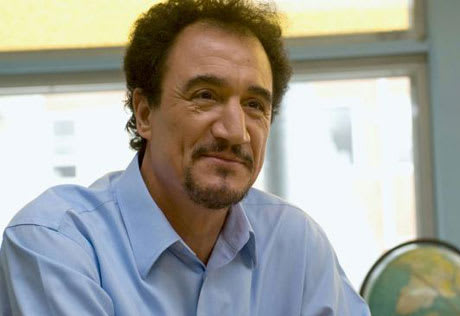Despite being saddled with the genre expectations of the "inspirational teacher" movie, Philippe Falardeau's treatise on the nature of childhood development and the various manifestations of violence, Monsieur Lazhar, transcends traditionalist tropes through sheer intelligence. It does so by taking things outside of the classroom, tackling our greater collective ideology and attitude towards raising and schooling children, even though the story itself takes place predominantly within the school. Still, the titular figure of Bachir Lazhar (Mohamed Fellag), an Algerian immigrant with a tragic background, does act as an instigator of change, or at least a figure of opposition to a Montreal grade school status quo. Hired to teach a classroom of scarred children, grieving over the loss of their previous teacher, whose body was found hanging in the classroom one morning by young Simon (Emilien Neron), he finds the administration's decision to sweep the issue under the carpet perplexing. Noting that the children, in particular, the precocious Alice (Sophie Nelisse), have a complex, albeit partially distorted, understanding of suicide, commenting that they perceived it as an act of hostility on the part of their teacher, Bachir addresses the taboo subject with them. This generalized, broad modern tendency to placate kids and avoid addressing challenging subjects is mirrored by a secondary storyline involving the act of hugging a grieving student, which, given the strict regulations regarding teacher-student association, is actually perceived as a violent act. What Monsieur Lazhar looks to address, or at least raise, is how this tenuous handling of children and cold handling of human connections affect those learning how to address and tackle the world at large. What does it mean when a generation of people reaches adulthood and are incapable of talking about their feelings or reaching out to each other for help? Without preaching, Falardeau's touching look at our collective modern ideology raises some very interesting questions for us to think about, which alone is quite the accomplishment. Unfortunately, all of the supplemental Blu-Ray material is in French-only, so only Francophones get to learn more about what happened behind the scenes.
(eOne)Monsieur Lazhar
Philippe Falardeau

BY Robert BellPublished Aug 17, 2012